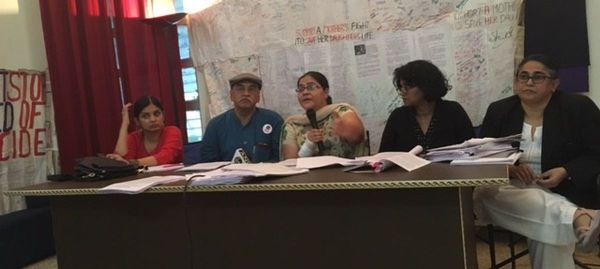Illegal sex determination: Did Mitu Khurana lose as a result of judicial insensitivity?
Illegal sex determination: Did Mitu Khurana lose as a result of judicial insensitivity?

Last Friday, after a hearing that barely lasted a few minutes, the Supreme Court dismissed Dr Mitu Khurana’s case. It was a bitter end to the Delhi resident’s eight-year-old battle against the doctors who allegedly conducted an ultrasound to illegally determine the sex of her twin daughters, apparently in collusion with her husband and in-laws.
Earlier, in April, the Delhi High Court had quashed the proceedings against the two accused doctors – Dr Harsh Mahajan of Mahajan Imaging, and Dr Nitin Seth, the radiologist who conducted the ultrasound – as it felt the case had exceeded the period of limitations of three years, a stipulation under criminal law.
Khurana’s case, activists said, is a huge setback to the women’s movement against the country’s rapidly declining sex ratio. At last count, according to the 2011 Census, the child sex ratio had declined from 927 girls for every 1,000 boys to 919 girls to 1,000 boys.
How it all started
Khurana’s story began in 2005 when, a year after marriage, she became pregnant. Her doctor husband Kamal Khurana and his relatives, she said, pressed her for an illegal sex determination examination, which she refused to do. They later tortured her and tried to force her to terminate her pregnancy, allegedly on finding out that she was carrying girls.
Sick with stomach pain and nausea – after she was allegedly fed cake with eggs, which she was allergic to – she was admitted to Jaipur Golden Hospital in Delhi. Here, she underwent an ultrasound examination – without her consent and while heavily sedated, she claimed.
In 2008, she found the ultrasound report and suspected it was actually a sex determination test. She filed a complaint with the National Commission for Women, the health minister and the appropriate authority under the Pre-Conception and Pre-Natal Diagnostic Techniques Act. When no major action was taken, she filed a complaint before a magistrate.
When the magistrate court summoned the accused doctors in 2011, they, in turn, filed a case in the Delhi High Court.
Khurana – said to be the first Indian woman to sue her now former husband and his relatives under the Pre-Conception and Pre-Natal Diagnostic Techniques Act, 1994, that bans foetal gender determination – lost the case despite having documentary evidence against the doctors.
During the trial, Dr Mahajan admitted in an affidavit to running an ultrasound imaging centre without registration, in direct contravention of the 1994 law.
Government health authorities, too, backed Khurana. They said the imaging centre had failed to submit her Form F – mandatory under law to be filled by the pregnant woman undergoing such an ultrasound test – to them. Her form, in fact, had gone missing.